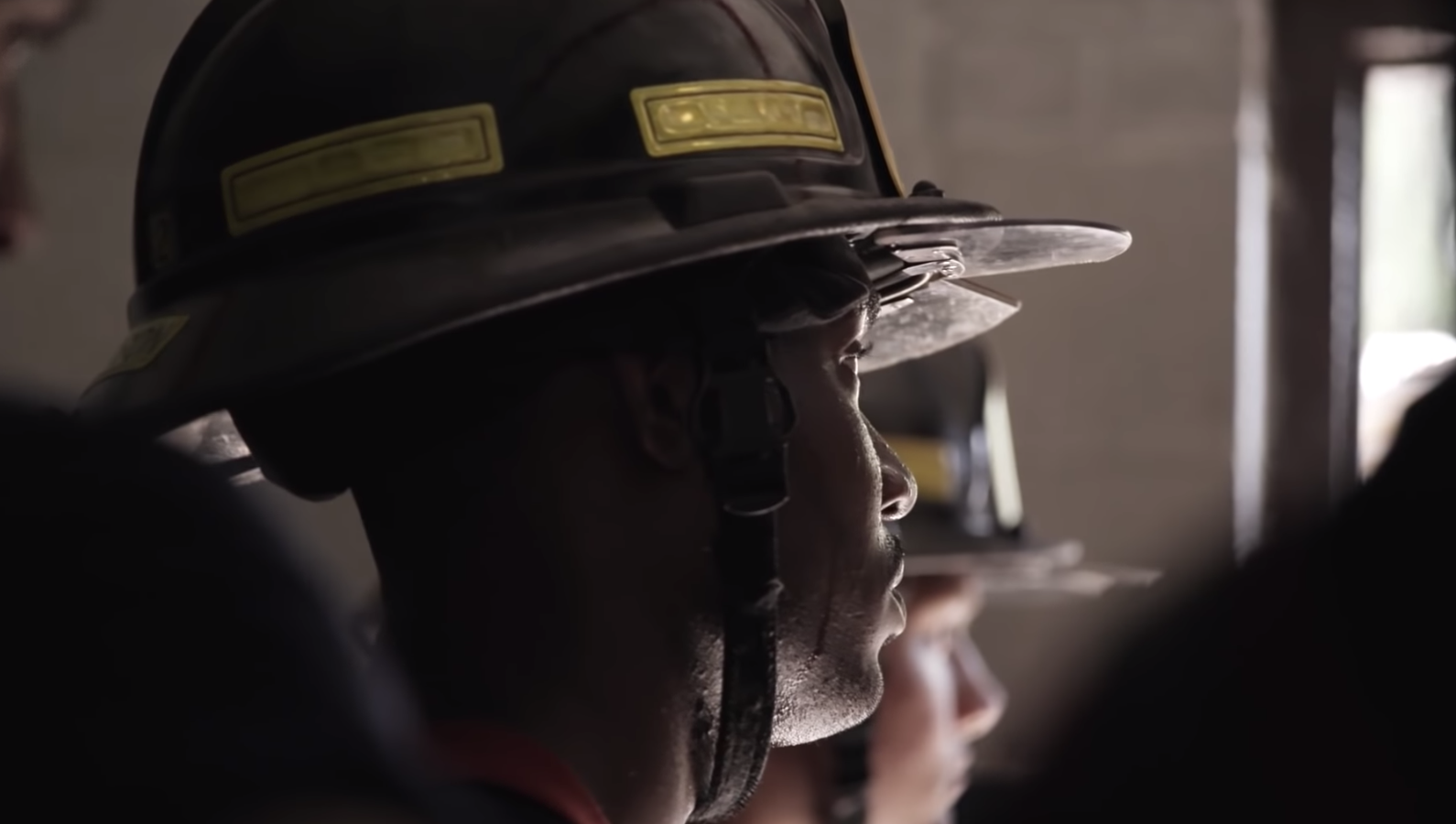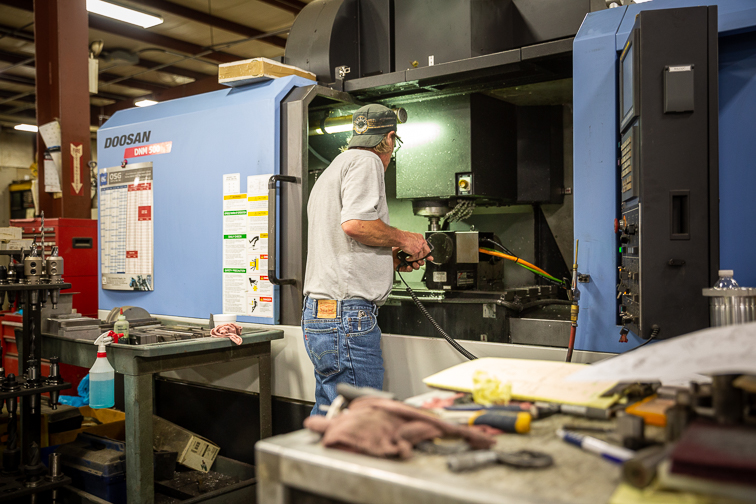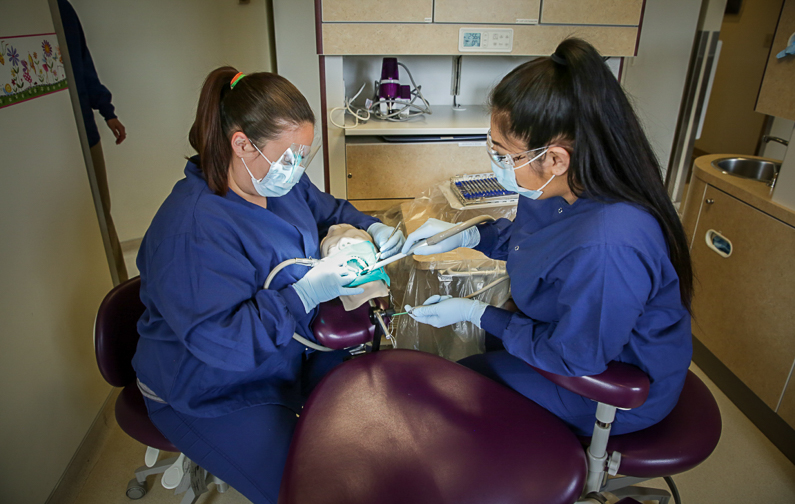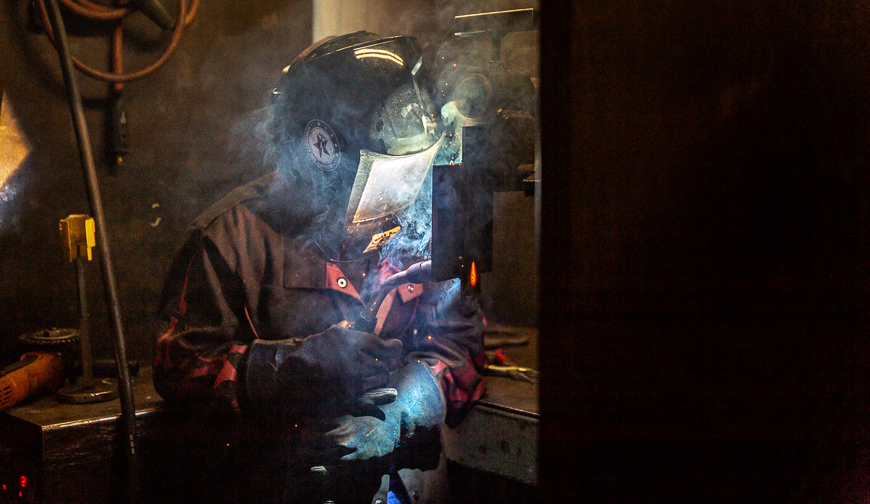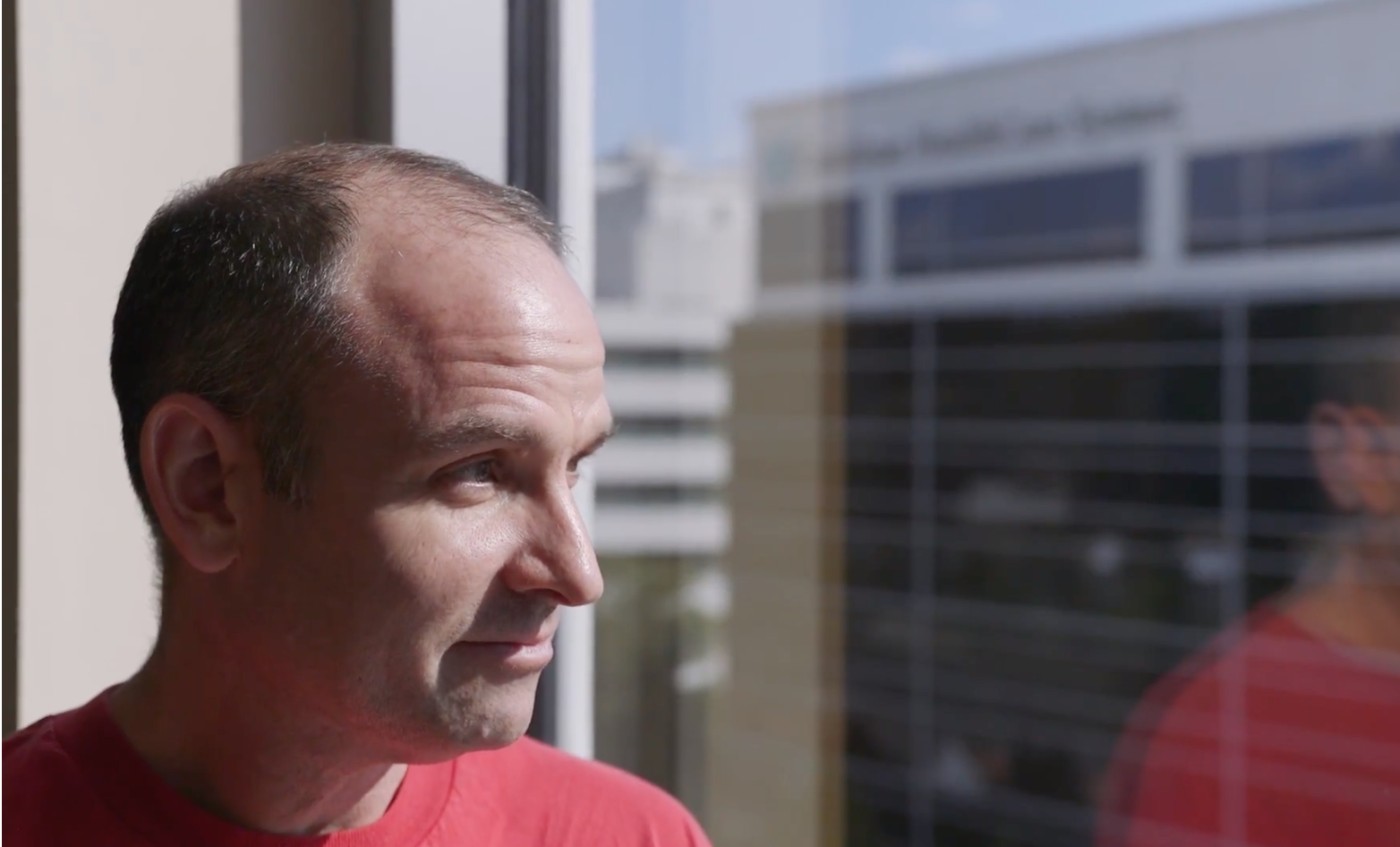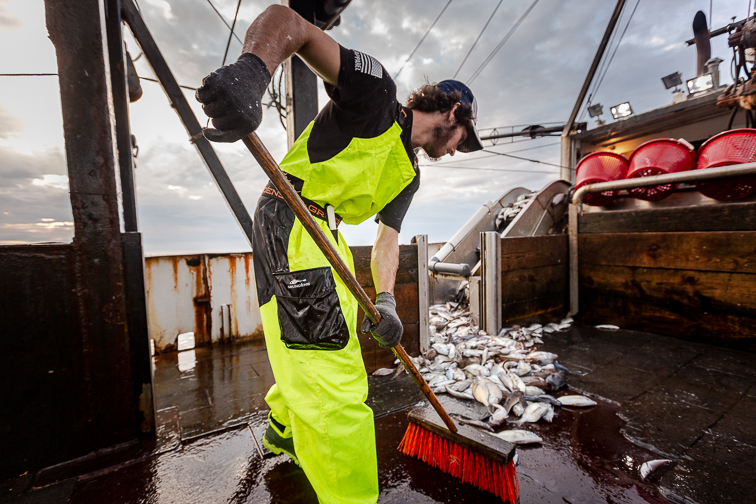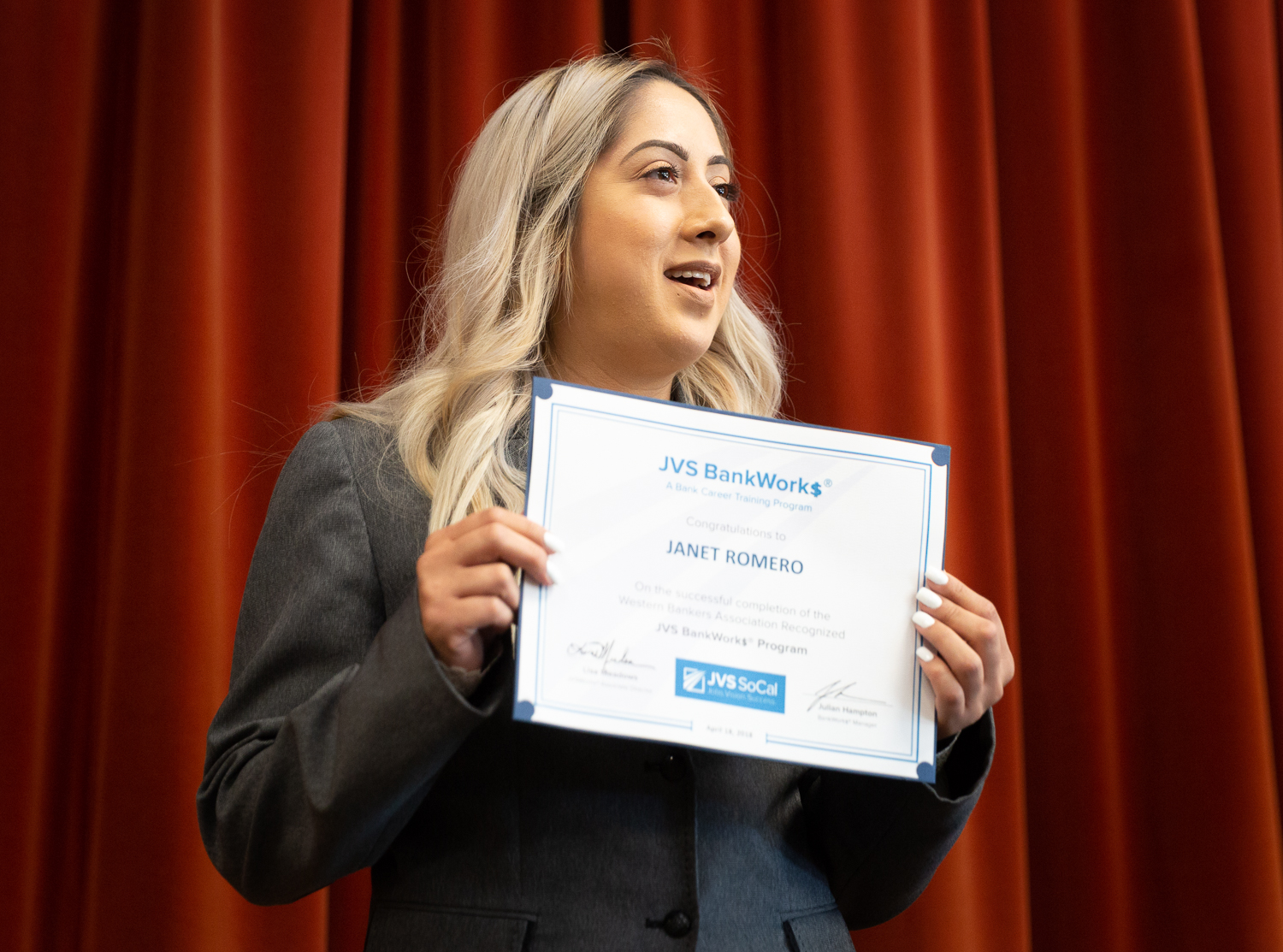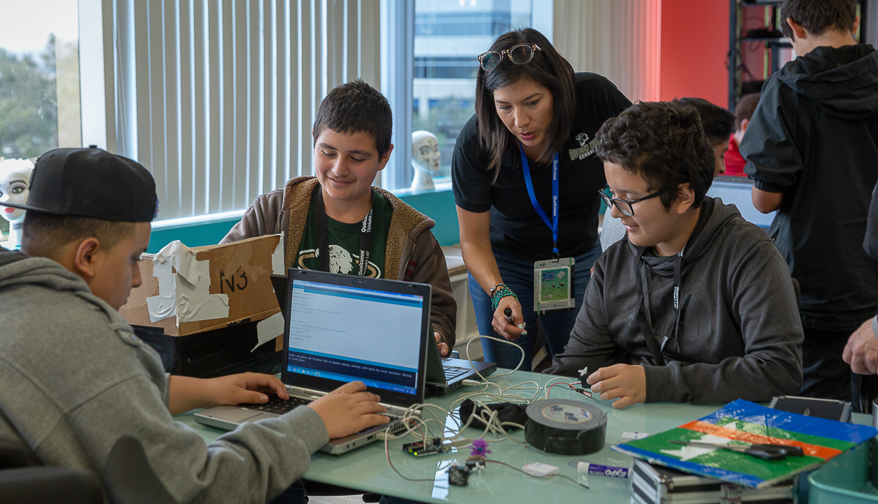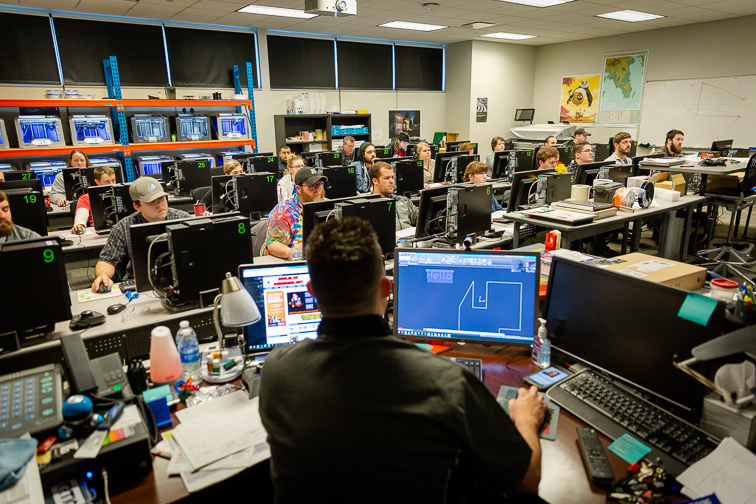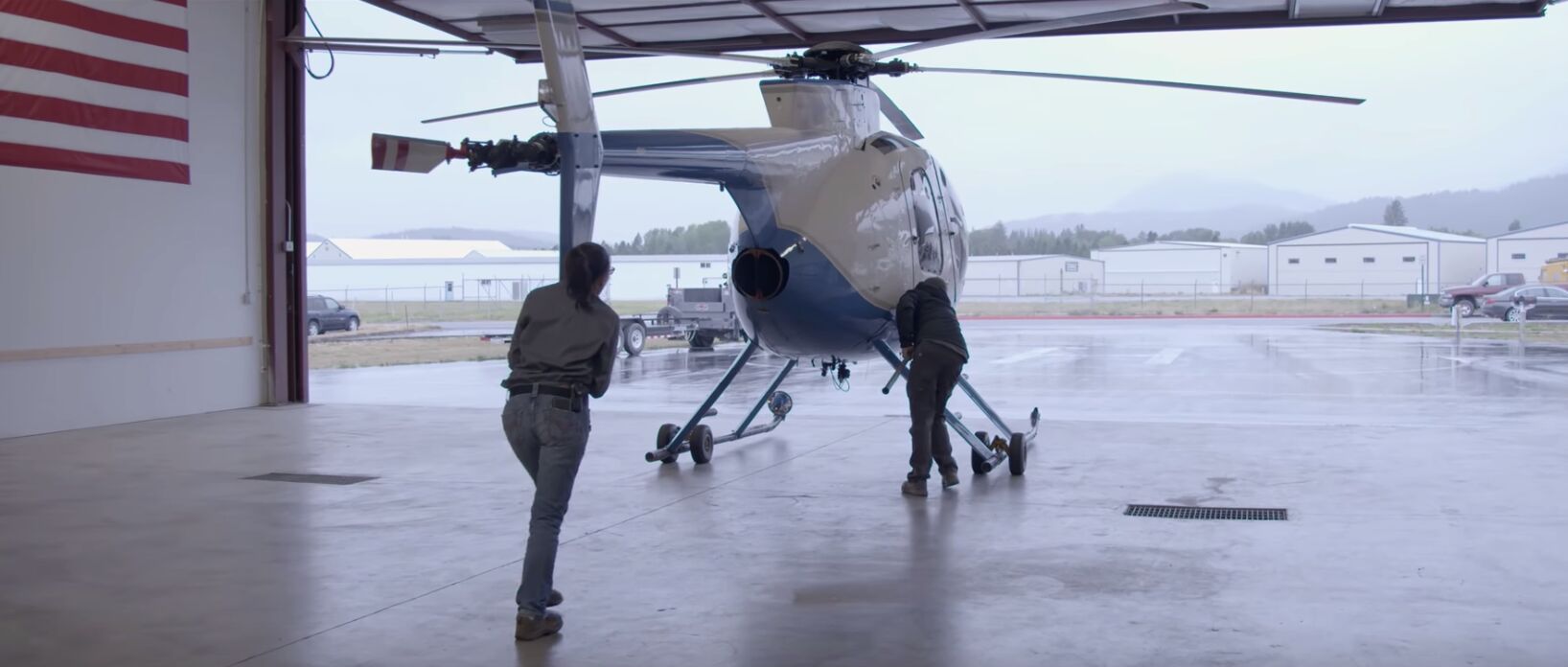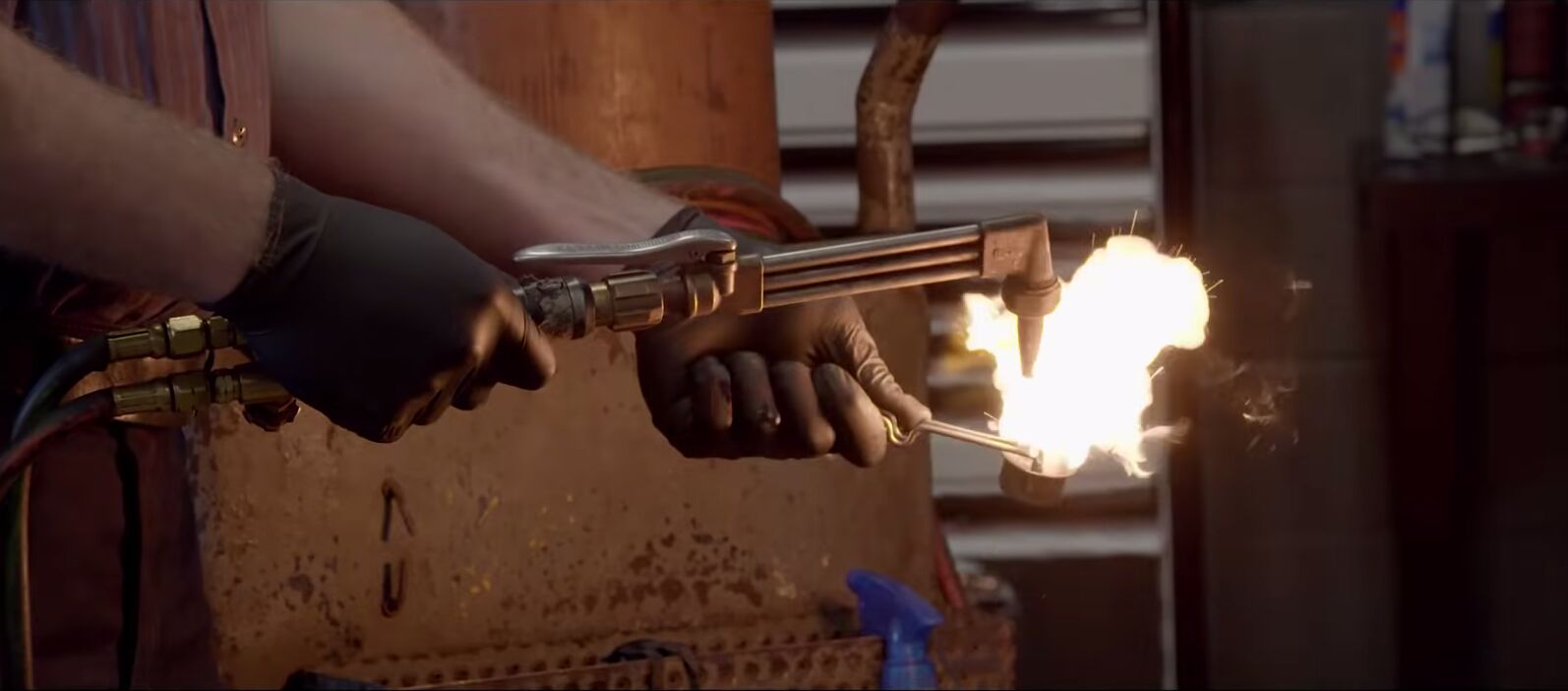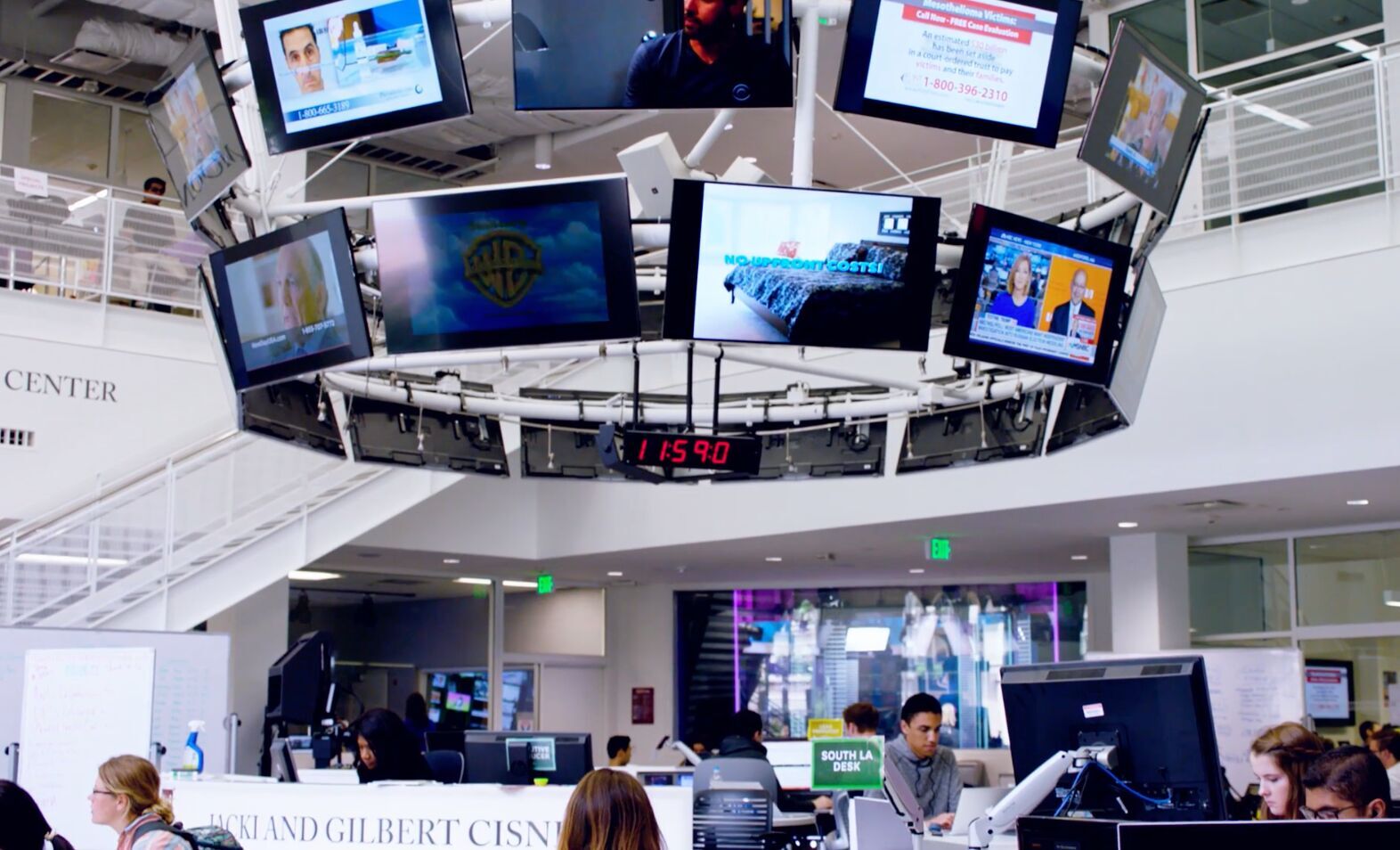Just how big is the annual SkillsUSA National Leadership and Skills Conference (NLSC) and the SkillsUSA Championships? It’s big enough to be a self-sustaining town.
More than 18,000 attendees are working an event the size of 20 football fields. A diverse group of students puts their training to the test in events ranging from cosmetology and construction to broadcasting and information technology. The NLSC is the future of work on display and SkillsUSA students are fired up to be a part of it.
This past June, SkillsUSA members descended on the Kentucky Exposition Center in Louisville and turned it into a model city filled with skilled talent. SkillsUSA board member and Caterpillar Inc. Global Manager of Organizational Development Chris Arvin gave WorkingNation a sense of the event’s magnitude.
“When you come to SkillsUSA, particularly this competition, you see a small town functioning on the competition floor below,” Arvin said. “What’s going on is you’re watching every job that you would [see when you] walk into a small town or a city.”
The national nonprofit organization brings the country together to promote the technical and soft skills that employers desire and SkillsUSA students have. It is where analog skills, such as swinging a hammer, are on par with digital ones found in robotics and 3D printing. The competitors are not going to reach rock star or sports hero notoriety, but they will return home with the pride of being treated like one for a week.
SkillsUSA is Reviving the Trades
While SkillsUSA does not have the name recognition of the Summer Olympics or the Super Bowl, the spectacle and competition level are just as intense. Regarding the hundreds of thousands of lives SkillsUSA impacts each year, the organization arguably has more of a long-term effect on the national economy.
SkillsUSA is the first student organization for trade and industrial education and has served more than 13 million members since 1965. The organization trains more than 340,000 middle school, high school, post-secondary and college students across 130 occupational skill areas. Its continuing mission is to develop the next generation of workforce leaders and promote the value of Career and Technical Education (CTE) programs.
Tim Lawrence, SkillsUSA’s executive director, said the nonprofit is the conduit for students, educators, and more than 600 SkillsUSA industry partners to advance skills training.

“The partnerships we enjoy are so important to workforce development,” said Lawrence. “The magic of SkillsUSA is its connections to business and industry.”
With thousands of local chapters spanning 50 states and two territories and support from corporations like Lowe’s Home Improvement, Toyota Motor, Caterpillar Inc., 3M, Snap-on Inc. and General Motors, SkillsUSA is strengthening the talent pipeline from schools to the workplace. Together they push CTE programs forward with new standards and technologies.
SkillsUSA’s strategy to develop skilled workers comes at a critical time in the U.S. labor market. Widespread labor shortages are happening across a majority of sectors. Construction employment, in particular, has not recovered from the devastating effects of the recession. There were more than 1 million fewer construction jobs after its peak in 2005.
Retirements and increased restrictions on immigrant labor are placing stress on construction companies to fill available jobs. Despite the industry’s recovery, companies are still contending with a skills gap. The U.S. housing shortage is one result of the industry’s inability to keep up with the rising demand for skilled workers.
Until recently, trade occupations and CTE programs have suffered from a stigma associated with careers that were considered low-paying and low-skilled. Kentucky Governor Matt Bevin told WorkingNation from the NLSC floor that the stigma led people to ignore skilled work entirely.
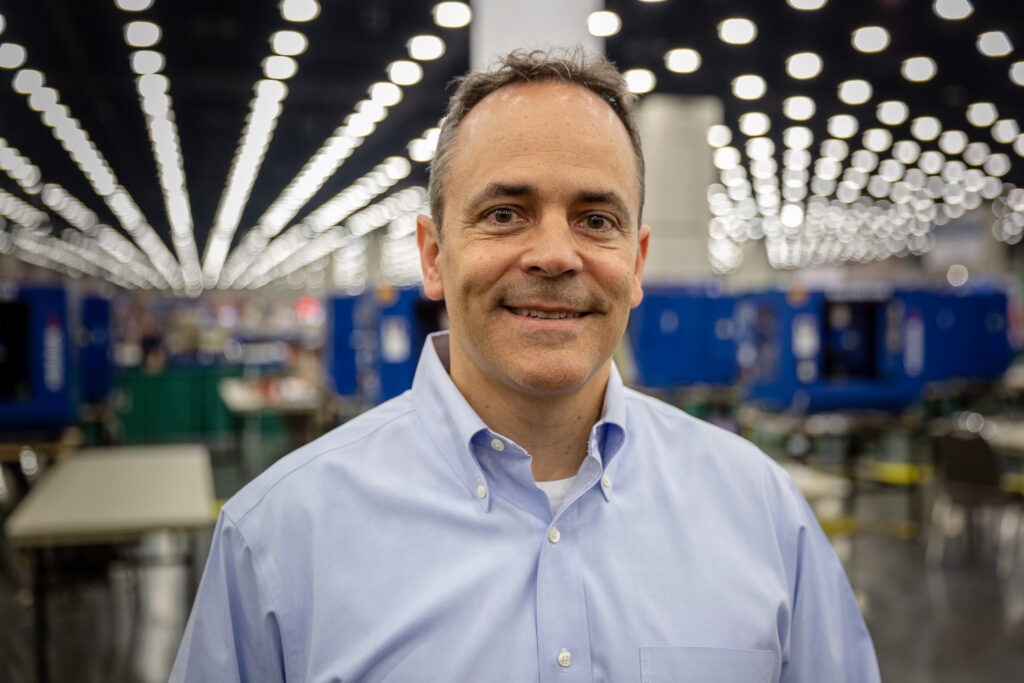
“Probably about 40 years ago, we got off track, and we started telling young people that somehow you should avoid skill trades. That you should go off to college and get a degree in anything, and that you’d somehow be magically better off,” Gov. Bevin said. “That’s not turning out to be the case. For people who don’t believe skill trades matter; ask them how difficult [it is] to find a plumber, or an electrician or somebody to take care of their HVAC system.”
With schools and public funding focused more on increasing college employment rather than creating a talent pipeline for employers, it has led to the disconnect between job seekers and employers and widened the skills gap. Many students are exiting college without degrees and with insurmountable debt. Many employers report that students are entering the workforce short on soft skills like communication and problem-solving. Considering the ballooning costs of four-year degrees, opting for a two-year degree or certificates that lead to good jobs can be a better economic decision for students.
Reversing the college or bust trend requires raising awareness about the opportunities for younger workers without a four-year degree. SkillsUSA also makes the trades more appealing to a new generation by elevating them to competition status. The same reverence that sports legends receive is bestowed on competitors whether they are a master at applying mortar to bricks or can control a robotic arm.
“We need young people that are engaged in the trades, excited about the trades, have passion about the trades and the professions that we serve to enter that talent pipeline,” Lawrence said.
Getting students to have that passion will take convincing them and their families about the ample career opportunities that await after graduation or obtaining a technical certificate. SkillsUSA makes employment a priority for students by treating the NLSC as a giant job fair. Each student must bring a resume and meet with employers who are looking to recruit talent from the competition floor.
Russ Hoffbauer, who worked for State Farm and currently serves on the SkillsUSA board, said that the quality of SkillsUSA students makes them ideal job candidates. They embody the world-class workers that SkillsUSA produces.

“When you meet these kids, it really gives you hope for the future of America. Because part of the interpersonal skills that we train through SkillsUSA is the ability to look someone in the eye, shake hands firmly, have a conversation with an adult and just really be a sharp individual that you would say when you met that person, ‘I would hire that person,’” Hoffbauer said.
16 Hours to Success
While many SkillsUSA students compete in the more than 100 events as individuals, the event’s TeamWorks contest tests the combined abilities of trades students representing four aspects of construction: carpentry, masonry, plumbing and electrical work. In only 16 hours, all teams must plan, present and build a structure from the same blueprints provided by SkillsUSA.
The pressures of time and competition are intended to bring out the best qualities in teams, such as the Georgia Northwestern Technical College squad from Calhoun, Georgia. WorkingNation’s filmmakers followed them during TeamWorks and discovered what makes this particular SkillsUSA competition special. If the national conference is like a small city, then TeamWorks reflects the spirit which holds it together.
Preparing for a national competition like SkillsUSA comes with a requisite amount of nerves. GNTC plumber and team leader Marvin Pointer offered a glimpse into his mindset going into TeamWorks.
“I think all good fighters get nervous before their fights. It doesn’t matter if it’s a competition, fight or a ballgame. All great athletes get nervous before their big competition or fight,” Pointer said.
There was plenty on the line for this year’s delegation. GNTC has been represented at SkillsUSA for the past three years and captured the bronze medal in 2016. Team advisor and GNTC construction management instructor Donald Holmes said that the 2018 team, with Pointer, carpenter George Soto, electrician Logan Thomas and mason Noah Ranels, found their groove when they took home the gold at the SkillsUSA Georgia competition in Atlanta. He was optimistic about their chances in Louisville.
“I was a little bit nervous when we went to the state competition, just from some of their practices and stuff, but they really pulled it together at the last minute,” said Holmes.
According to SkillsUSA board member Jim Bohn, the immense presence of the SkillsUSA Championships can be intimidating. However, one of the most critical aspects of TeamWorks is how it brings out every team’s confidence while performing under the pressure of the deadline.
“Obviously the first day here, they’re a little bit nervous, but once they get going, I think that confidence comes through. Their skills start to work, and from there they really get to start to build their project and feel good about it,” Bohn said.
The timeframe to see a project from blueprint to the completed structure may seem impossible at first glance. TeamWorks contestants get to work with the newest tools and materials, provided by the more than 30 sponsors of the event, including Bohn’s employer, the Robert Bosch Tool Corporation. Beyond the confidence from working with state-of-the-art equipment, TeamWorks participants draw from their strengths and skills to get their projects completed.

“With a teamwork experience, or a teamwork attitude, you can get a lot done,” said Bohn. “Especially a project in a very short period of time, and really show that your skills working together can really accomplish something.”
The GNTC team rode the highs and lows of building their structure over two eight-hour shifts. The GNTC team was not as far along as some of their competition after day one. Holmes said he was impressed with how his team would huddle up and map out their next strategy to press on and catch up. But he was “a little more stern” in his coaching session the next day and motivated his team to rally ahead on day two.
“They felt that fire underneath them, and I think they really stepped up to the plate,” said Holmes. “They really came out shining at the end. I was very proud of their completion, and it was a great feeling to see these guys come together and put on a good show and complete this thing.”
The final push was enough to get the GNTC team to the finish line, but it was not enough to get them on the medal stand this year. Holmes said that he hopes the younger teammates will return for another shot at glory. He said that he believes they will take what they’ve learned from Louisville and use that experience to bring GNTC another medal.
“Especially when you physically have been through something like [the SkillsUSA Championships], and then you’re able to turn around and train someone coming up, it’s just a good feeling to be able to show up and help somebody else down the road. I’m hoping these guys will be able to take that into next year’s competition,” Holmes said.



